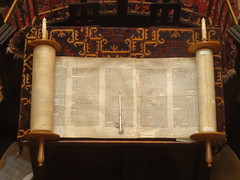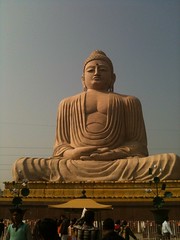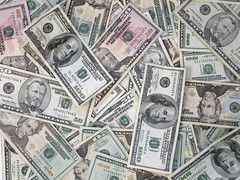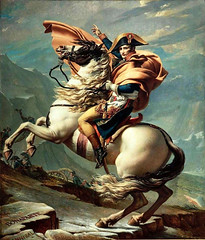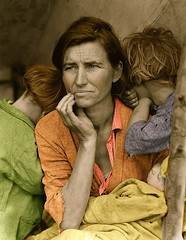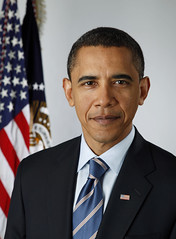| 6920877694 | What was the Reconquista? | Long series of wars between Christians and Muslims(Moors) over control of the Iberian peninsula, happened between 718-1492 | | 0 |
| 6920877695 | How did the Portuguese maintain control over their trade empire? | Had nobles in Brazil with a governor to oversee. Used slave/forced labor | | 1 |
| 6920877696 | What was the Columbian Exchange and impact? | Trade of plants, animals, cultures, technology and ideas; eventually lead to African slave trade | | 2 |
| 6920877697 | What caused Luther to be upset with the church? | Selling of indulgences; saying salvation is reached by actions not faith; catholic misrepresentation of the Bible | | 3 |
| 6920877698 | What were the results of the Council of Trent? | Seminaries for clergy, end of indulgences | | 4 |
| 6920877699 | What European countries were constitutional countries as opposed to being run by an absolute monarch? | Most eastern countries | | 5 |
| 6920877700 | What was the Glorious Revolution? | Overthrow of King James II of England; diminished any chance of England being a Catholic nation | | 6 |
| 6920877701 | Who was the sun king of France? | King Louis XIV | | 7 |
| 6920877702 | What were the mestizos and métis? | Mestizos-mixed race of Spanish and Natives Americans
Métis-mix of European and Native American especially in western Canada | | 8 |
| 6920877703 | What did the Treaty of Tordesillas do? | Agreement between Spain and Portugal that everything west of Brazil was Spanish land | | 9 |
| 6920877704 | What purpose did Australia serve initially? | Penal colony | | 10 |
| 6920877705 | What were the seats of power in New Spain and the Viceroyalty of Peru? | Viceroy-governor like position; had many viceroys in different colonies to watch over | | 11 |
| 6920877706 | What was the Dutch policy in Indonesia? | Dutch did not care about influencing Indonesia, only wanted to make money | | 12 |
| 6920877707 | Major city in Songhay? | Goa Mosque; Timbuktu and Djenne | | 13 |
| 6920877708 | Who first settled in Cape Town? | The Dutch; workers for the Dutch East India Company were sent to find fresh water, vegetables, and meat for passing ships | | 14 |
| 6920877709 | What was Great Zimbabwe? | 1800 ft2 city built in early 11th century AD by Bantu-speaking people's | | 15 |
| 6920877710 | What was the social organization in Africa? | Men hunted and held roles like priests and government officials while women took care of children, helped on the farms, and made baskets to sell | | 16 |
| 6920877711 | African slavery—Who came first? How did they do it? Where did they go? | Spain and Portugal; many were kidnapped but others were sold if they were a criminal; Caribbeans | | 17 |
| 6920877712 | Indies Piece, Middle Passage, Triangular Trade | Slang term to describe price of a male African slave; slave trip to indies (usually on densely packed ships); Africa: send slaves to America, America: sends raw materials to Europe, Europe: sends guns and rum to Africa | | 18 |
| 6920877713 | Ming emperor—who started the Ming? What dynasty replaced them? What was their policy? | Zhu Yuanzhang; Qing dynasty; isolationism | | 19 |
| 6920877714 | What was the role of women in the Ming and Qing? | Relatively low status, viewed as property; foot-binding | | 20 |
| 6920877715 | What caused China to fall behind in technology? | Isolation policy hindered progression | | 21 |
| 6920877716 | What was the most respected social group according to Confucianism? | Elders | | 22 |
| 6920877717 | What was the Bakufu? | Shogunate; head of Japanese government from 1600-late 1800 | | 23 |
| 6920877718 | What was the Japanese policy of isolation in the 17th century? | Strict regulations were applied in foreign trade but were not completely isolated | | 24 |
| 6920877719 | Safavid, Ottoman, and Mughal all claimed their destiny came from? | David??? | | 25 |
| 6920877720 | What was the devshirme? | Young Christian boys taken from families to train in the military | | 26 |
| 6920877721 | What was the importance of Chaldiran? | Battle between Ottoman and Safavid Empires; ended in Ottoman victory and annex in Anatolia | | 27 |
| 6920877722 | What was the steppe diplomacy? | Display of courage in battle, intense loyalties while doing any/everything to move higher in rank | | 28 |
| 6920877723 | Factors that caused Islamic empires to fall? | Sultan deaths/replacing sultan, unsuccessful wars, rapid European advancements | | 29 |
| 6920877724 | Cause of the French Revolution | King Louis XVI taxing the life out of the 3rd estate (literally though like they were so poor they couldn't afford food) | | 30 |
| 6925072512 | Significance of the Bastille, guiding principals of the French Revolution? | Common people (3rd Estate) stormed the conference hall in Bastille in hopes to get a say in taxes; guiding principal was 3rd Estate wanted less taxed | | 31 |
| 6920877725 | Mehmed II | Also called Mehmed the Conquerer; conquered Constantinople and later Anatolia and Bosnia | | 32 |
| 6920877726 | Who was John Locke? | "Father of Liberalism" influenced many other Enlightenment philosophers; influenced USA Declaration of Independence "pursuit of life, liberty, and the purist of happiness" | | 33 |
| 6920877727 | What were the goals of the Enlightenment? | To inform the public; philosopher discussed issues of government, education, law, slavery, and even human nature | | 34 |
| 6920877728 | What was the Ancient regime in France? | 1st Estate-clergy/church officials
2nd Estate-nobles (kings, knights, aristocrats)
3rd Estate-everyone else | | 35 |
| 6920877729 | Napoleonic Code? | French civil code enacted during rule of Napoleon | | 36 |
| 6920877730 | Wars that Napoleon won/lost? | Won-Napoleonic Wars
Lost-Invasion of Russia | | 37 |
| 6920877731 | What did Theodore Herzel begin? | Zionism | | 38 |
| 6920877732 | What is Metternich responsible for? | Exile of Napoleon | | 39 |
| 6920877733 | Tanzimat Reforms—significance/what were they? | Centralize Ottoman rule; collect more tax revenue; 1839-1876 | | 40 |
| 6920877734 | What Reform in Russia demonstrated enlightened ideals? | Russian Reform of the 18th century | | 41 |
| 6920877735 | What was Sergei Witte responsible for in Russia? | Designed Russia's first constitution | | 42 |
| 6920877736 | What happened on Bloody Sunday and what were the results of this disaster? | Unarmed protesters were shot by Russian Imperial Army; sparked the Russian revolution | | 43 |
| 6920877737 | Taiping rebellion | Civil war between communist and nationalist; | | 44 |
| 6920877738 | Meiji reforms(Meiji Restoration) what were they? | Restored imperial rule to Japan under Emperor Meiji; 1868 | | 45 |
| 6920877739 | What was the Sepoy Rebellion of 1857? | Uprising bc gun powder was laced in beef and pork fat | | 46 |
| 6920877740 | What were the results of the Berlin Conference? | Africa was divided into sections for each European country to colonize | | 47 |
| 6920877741 | Russo-Japanese War showed what? | Showed that Japan was a competing nation in military and technology | | 48 |
| 6920877742 | What is Self-Determination? | Country determines its own statehood, loyalties, and government; process by which a person controls their own life | | 49 |
| 6920877743 | Causes of WWI, How was it total war? | Direct-assignation of Archduke Frank Ferdinand
Indirect-Germany instigated war to gain power in Europe
Total war bc all the European colonies were involved by producing supplies for war effort | | 50 |
| 6920877744 | What was the motto of the Bolsheviks of Russia? | Peace, Bread, Land | | 51 |
| 6920877745 | Treaty of Brest-Litovsk | Peace treaty between Bolsheviks and Central powers | | 52 |
| 6920877746 | WWI—Leauge of Nations | Created as a place to resolve international issues | | 53 |
| 6920877747 | How did the Fascist leaders come to power? | Came to a country in bad economic state, promised great change, strongly admired by many, use law force to keep order | | 54 |
| 6920877748 | What role did the Spanish Civil War serve for the Axis powers | Offered training for military and an opportunity to spread facism | | 55 |
| 6920877749 | Munich Agreement | Said that Hitler would not invade more lands i.e. Poland | | 56 |
| 6920877750 | Japanese Surrender- who precipitated it? | WW1-Japanese Navy not able to compete with allied nations navy
WW2-bombing of Hiroshima and Nagasaki | | 57 |
| 6920877751 | Cold War- what were the two sides? | USA and Soviet Union | | 58 |
| 6920877752 | Lenin- NEP/War Communism | New Economic Policy; ruined Soviet economy in 5 years | | 59 |
| 6920877753 | Stalin- Five year plan | Attempt to get Soviet Union as modernized as Western Europe in 5 years | | 60 |
| 6920877754 | What was the beginning of the European Theatre of WWII? | German invasion of Poland | | 61 |
| 6920877755 | Blitzkrieg? | Intense bombing of England in an attempt to hinder war effort | | 62 |
| 6920877756 | What was the goal of the Germans in the Battle of Britain and Operation Barbarossa? | Avoid a two front War | | 63 |
| 6920877757 | What happened after the Normandy Invasion? | Allies invaded France and german supplies began to run short; hitler shot himself 11 months later | | 64 |
| 6920877758 | Death camps? Name some of the worst | Concentration camps specifically designed to kill prisoners; auschwitz | | 65 |
| 6920877759 | Truman Doctrine/Marshall Plan/NATO/Warsaw | USA will provide political, military, and economic support to all democratic nations; USA gave Europe $13 billion to rebuild after WW2; North Atlantic Treaty Organization; defense treaty between Soviet Union and seven soviet satellite nations | | 66 |
| 6920877760 | Results of Korean War?/Bay of Pigs Invasions?/Cuban Missile Crisis | Korea splits into communist north and democratic south; Fidel Castro gained power in Cuba; highest threat of atomic war, Russia eventually removed weapons and USA agreed to respect Cuban boundaries | | 67 |
| 6920877761 | Who de Stalinized Russia? | Nikita Khrushchev | | 68 |
| 6920877762 | What was the Brezhnev Doctrine? | Failed attempt of Czechs to gain more control in Russia | | 69 |
| 6920877763 | Results of the Chinese Civil War? | Communist won | | 70 |
| 6920877764 | What is détente? | Strained relationships between countries | | 71 |
| 6920877765 | What was the impact of the Afghan war on Soviet Union? | Decline in military and economy due to failed invasion | | 72 |
| 6920877766 | What role did Gorbachev and Yeltsin play in ending the Cold War? Perestroika, Glastnost? | Gorbachev-centralized economy inefficiently, declined standard of living
Yeltsin-dismantled communist party
Perestroika-tried decentralizing economy, alienated people of power
Glasnost-open to public criticism, admitted to past mistakes | | 73 |
| 6920877767 | What was solidarity in Poland? | Non-violent, anti-communist social movement | | 74 |
| 6920877768 | Jinnah? | Founder of Pakistan | | 75 |
| 6920877769 | How was Kashmir impacted as a result of the creation of India and Pakistan? | Conflicts over areas and borders in Kashmir arised | | 76 |
| 6920877770 | Khomeini | Founder of Iran in 1979 | | 77 |
| 6920877771 | Great Leap Forward | Economic and social campaign of the Chinese communist party; | | 78 |
| 6920877772 | Vietnam- Who was Ho Chi Minh? Battle of Diem Bein Phu | Vietnamese communist revolutionary leader; battle between French and Vietnamese army's | | 79 |
| 6920877773 | Who did the Algerians fight for independence from? | France | | 80 |
| 6920877774 | Who did Iran fight in the 1980's? | Iraq | | 81 |
| 6920877775 | Where was apartheid? | South Africa | | 82 |
| 6920877776 | What is OPEC? | Organization of Petroleum Export Countries | | 83 |
| 6920877777 | What caused the War on Terror? | 9/11 | | 84 |




























